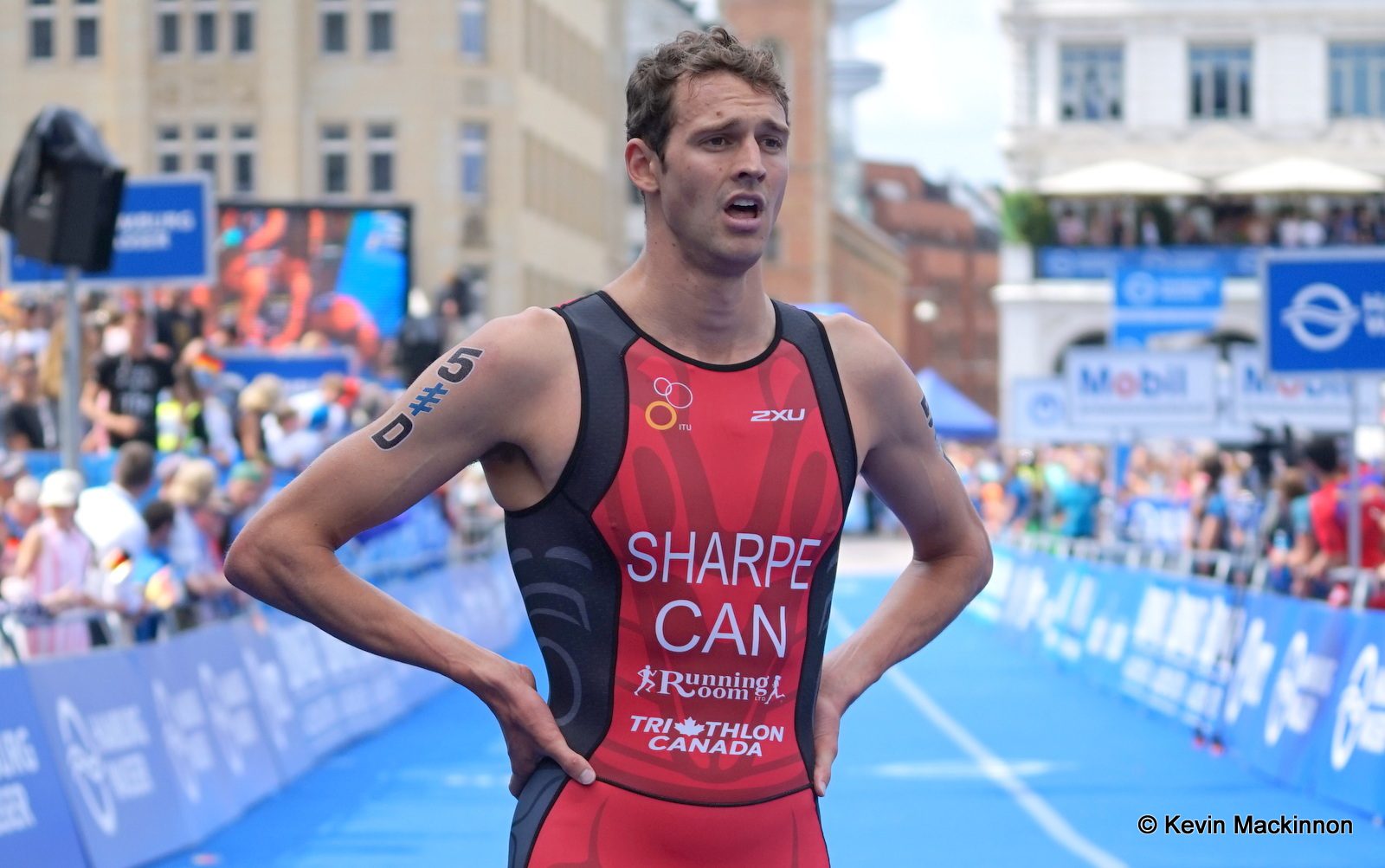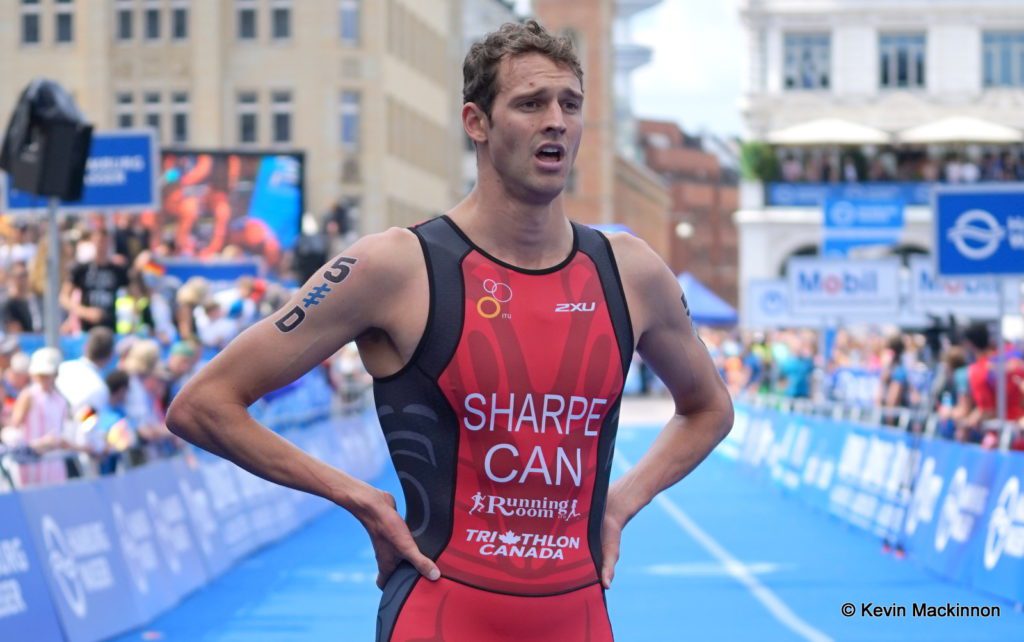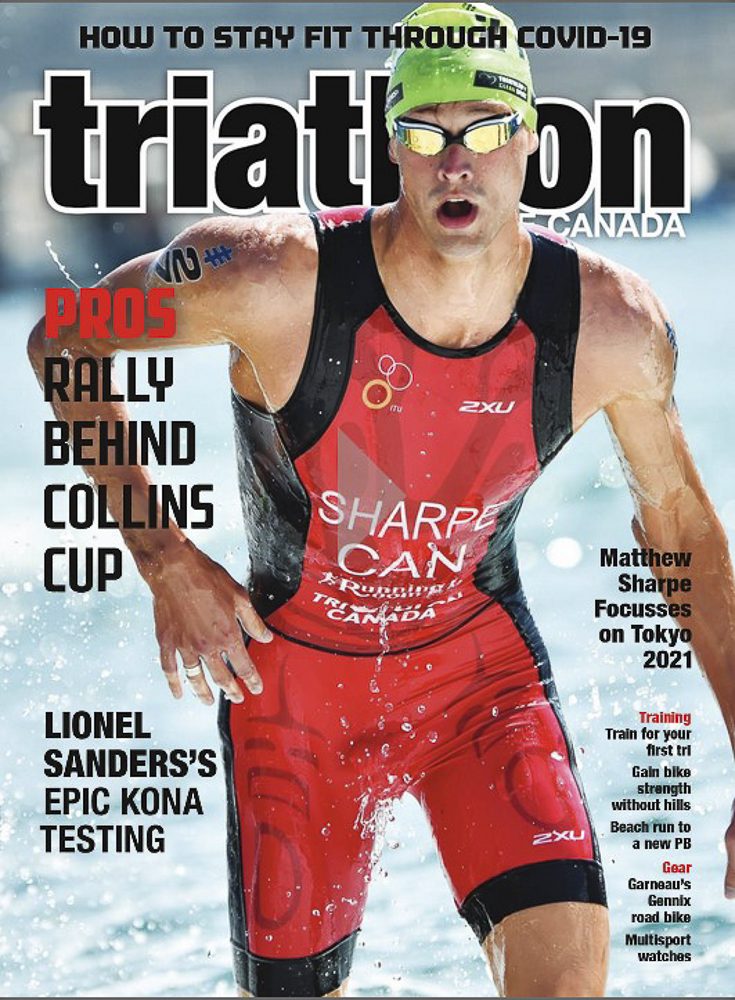Matthew Sharpe switches coaches
Olympic hopeful moves on from national team program and is now working with Lance Watson.

Canadian Olympic hopeful Matthew Sharpe graced the cover of our May issue of Triathlon Magazine Canada. He has announced that he’ll be working with Lance Watson as he gears up for next year’s Olympic Games. We caught up with both Sharpe and Watson for their thoughts.

“I’ve decided to relocate back to Victoria,” Sharpe said in a video posted on Instagram last week. “I’ve lived here for more than half my life now – it’s home for me. It’s comfortable. I love being here, I love training here and over the years I’ve found my best performances have come from training here in Victoria. In terms of working with coach Lance Watson … I wanted to figure out a new situation in terms of my training environment and my coaching situation and, for me, someone like Lance is the perfect fit. He’s obviously been to the highest level of Olympic coaching, having coached a gold medalist, and he’s someone I can trust will help me achieve my Olympic dreams.”
Triathlon Magazine Canada: What prompted the move at this point? Was this something you were planning on doing after Tokyo anyway?
Matthew Sharpe: I had committed to the National Program through 2020. It’s well supported, and we are based in Arizona for much of the year. After almost five years it had become apparent I had made the gains that I could make in that environment and needed to look outwards for me to take the next step. Through a period of reflection back at home, and talking things out while working with my sports psych, I came to the decision that continuing my previous training situation was not healthy or sustainable through 2021. We determined the details of what a successful training environment might look like for me. This included relocating back to my hometown of Victoria, which is also the home of Triathlon Canada. I have always had success training in Victoria.
Were there any issues with you and Jono (Hall – Triathlon Canada head coach) that have made you decide to move on?
Jono developed me into a consistent performer, and we had success. I am grateful for this. But the working relationship was never easy for either of us. I still have a lot of respect for Jono. This decision was not taken lightly. I made this decision as the best choice for my own performance, and personal wellness.
This was not an easy decision. Leaving the funded program meant I lost the resources that I previously had access to including training equipment, swim lane access and funding for competitions. Going into an Olympic year, this has added another layer of challenge. While this is the right decision for maximizing my performance, it has added financial stress. (I would be super grateful for help here, it will make my Olympic dream a reality!)

What benefits do you see from working with Lance? (I am guessing his experience working with Olympians is important, but are there other aspects to the new relationship you’re looking forward to?)
Lance’s experience in peaking athletes for Olympic performance speaks for itself. I am super grateful he has taken me on as an athlete. I am also lucky that we are based in the same community, and I have actually been able to work with him in person (from a social-distance of course!). It has been fun getting to know him and I recently found out we were both born in Campbell River, BC, of all places!
I have been very fortunate to work with many world-class coaches in my career. Lance currently works one on one with athletes, rather than in a classic squad scenario. This is the right situation for me at this point in my career. We are putting my skill set and training under the microscope to make two to three per cent gains, which is massive at the world level of competition. It is great to have a new set of eyes to identify areas where I can improve. He has already made a couple of interventions that will help me make significant gains!
Another added benefit of working with Lance is ongoing insight and mentorship from Brent McMahon. Lance and Brent have been working together for over 20 years, and Brent has raced in every scenario, including two Olympics. We have been slicing and dicing ITU pack riding for instance. He has provided some insights I hadn’t yet considered.
Another thing I am excited about working with Lance is that he is expert in helping athletes perform in long course races. I’d love the chance to compete in a 70.3 someday. With his guidance I’m sure I could learn how to succeed at these race distances as well.
We also had a chance to catch up with Lance Watson, the head coach of LifeSport Coaching:
Triathlon Magazine Canada: When did you and Matt start working together?
Lance Watson: We formalized it in late April, so it’s about a month now.
Did the postponement of the Games have something to do with the new coaching arrangement?
For sure, from our discussions Matt was ready to move to a more individualized situation and relocate to Victoria. He didn’t plan to change until after 2020, and risk disrupting preparation. With COVID-19, Matt approached me in April to discuss how it might work as he would be in Victoria for the foreseeable future with travel restrictions, and wanted to base in Victoria ongoing. I’ve know Matt for a long time so it was a natural fit, with the added benefit of being in the same hometown.
Matt mentioned in his video that you’ve challenged him in ways he hasn’t been before – can you provide some insights as to what those might be?
Different coaches have different approaches. Historically, when I coached the national team, I did squad training. My career has evolved to more one on one, which suits an experienced athlete looking to make the next step, through personalized refinements. In this case it would be more attention to video, different structures to bike workouts, very personalized and detailed bike erg trainer sessions, creating skill progressions, and education regarding interpreting training data that can be transferred to real world training and racing experiences. We have identified some run mechanical issues and we are building a strength and physio team to support me in helping him address this. Matt has been well coached and has the fundamentals. We are drilling into the “tip of the iceberg” details.
What do you think Matt needs to work on to achieve his goals in Tokyo next year?
Current athlete transition input from national team coach Jono Hall are improved bike strength, bike handling skills and ability to help execute tactical support for Tyler Mislawchuk, helping put him in a medal contending position coming off the bike in Tokyo. We will address this with specific focused bike work, bike handling, video analyses of ITU pack riding tactics and dynamics for learning, a personalized strength and body maintenance routine, along with ongoing input from Triathlon Canada. Our goals is to have him at a level where there will be no doubt regarding his selection to play that team support role, and also to be a second racer option for Canada if things go sideways for Tyler (which we hope is not the case!)
Are there other things about Matt that made you want to work with him?
I have known Matt for a long time. I have always found Matt to be honest, thoughtful and hardworking. Coaches play important roles as mentors in the development of young people as athletes, healthy and happy human beings and as future role models. I think Matt is in a good place to accomplish all of this, and I look forward to helping guide him into his performance prime.
